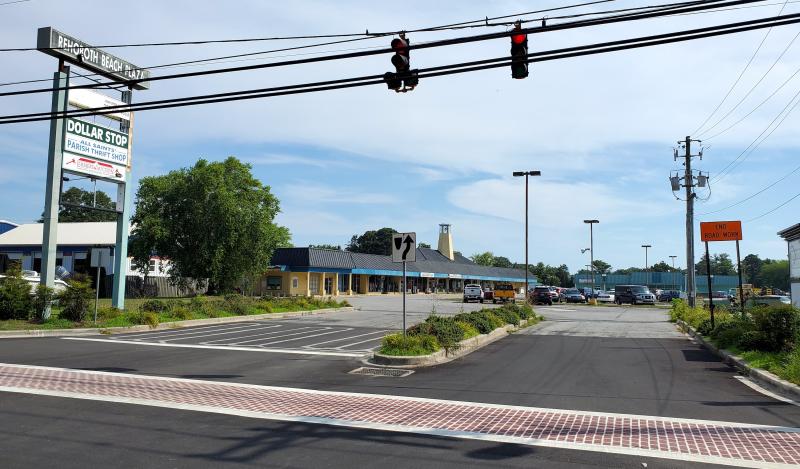The BeachWalk saga continues in Rehoboth Beach.
After years of litigation, the Delaware Supreme Court recently upheld a lower court’s ruling that Ocean Bay Mart LLC did not have vested rights for its proposed 63-unit development, known as BeachWalk, to be considered as a condominium and that the development would have to go through Rehoboth Beach’s major subdivision process. At the time, late September, city officials were hopeful the court’s favorable ruling would be the end of the litigation. It was not.
Attorney Richard Forsten, representing Ocean Bay Mart LLC, filed a motion for reargument, saying the court’s “opinion ignores the statutory role played by the Rehoboth Board of Adjustment and the legal significance of the board’s final and unappealed decision.”
In August 2015, two months after the initial plans for the project were submitted, former city Building Inspector Dam Molina determined the project could not move forward because of a footnote in the city’s table-of-use regulations stating no more than one building could be built on a lot.
Molina’s decision was appealed to the board of adjustment, which determined that the city’s code was ambiguous and overruled Molina’s decision. When BeachWalk went before the planning commission for site-plan review, its members determined BeachWalk was a subdivision; city commissioners upheld that ruling.
During a special meeting in May 2019, city commissioners voted unanimously to enforce an ordinance created in 2017 that applies to all pending and future applications, and an ordinance created in 2016 codifying that only one building could be built on a lot.
In his recent motion, filed Oct. 17, Forsten says the General Assembly has created boards of adjustment for all state municipalities.
Among their duties, said Forsten, is that boards hear appeals from landowners who believe a zoning official has erred. Board decisions bind the parties and appeals are taken to Superior Court, he said.
In the absence of reargument, the board of adjustment’s statutorily created appellate role is rendered pointless, said Forsten.
“The question then becomes: why appeal to a board of adjustment?” wrote Forsten.
“What landowner, when faced with an adverse interpretation of an ambiguous statute, can ever hope to prevail? If the board rules against you, you lose.
“If the board rules in your favor, the government amends the ordinance, the amendment applies to you, and you lose.” This was not the General Assembly’s intent, he said. The General Assembly requires appeals from the board to go to Superior Court.
Representing the city, attorney Max Walton filed the city’s response Nov. 7. He argues that after the amendment was made to city code, the board’s interpretation of the prior code is null and void because the code section the board previously interpreted no longer governs the application.
Even if the city had appealed the board’s decision to the Superior Court, the Superior Court is required to apply the amended ordinance rather than the previous code, said Walton.
Finally, said Walton in his response, the appellant contends that once the board ruled, the BeachWalk plan was entitled to approval.
“This, again, is incorrect because the plan had not even reached the planning commission stage of the review process – nor had a preliminary or public hearing – at the time of the BoA’s decision,” said Walton. “Because the review process was in the very initial stages and had not been completed when the BoA ruled, appellant had no right to any approval.”
During a commissioner workshop Nov. 7, City Solicitor Glenn Mandalas said the court has a 90-day window to issue its decision.
Editor’s note: Reporter Ryan Mavity contributed to this story.
Chris Flood has been working for the Cape Gazette since early 2014. He currently covers Rehoboth Beach and Henlopen Acres, but has also covered Dewey Beach and the state government. He covers environmental stories, business stories and random stories on subjects he finds interesting, and he also writes a column called Choppin’ Wood that runs every other week. He’s a graduate of the University of Maine and the Landing School of Boat Building & Design.






















































